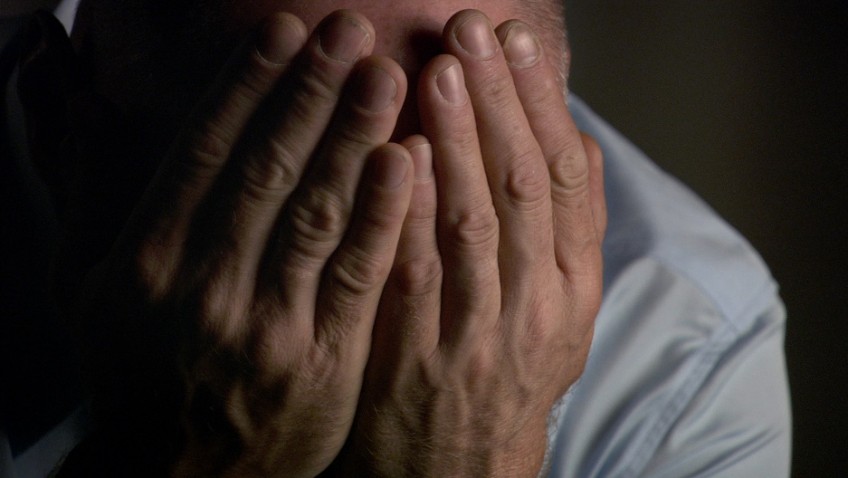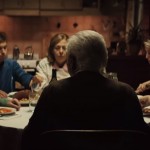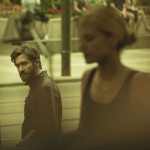Joyce Glasser reviews The Fear of 13 (October 28, 2015) Cert 15, 95 mins.
Do you know what Triskaidekaphobia means? Nick, who has spent 23 years on death row for a crime he did not commit, does. He entered prison almost illiterate at age 20, when ‘a small gesture of humanity in [a prison] guard, changed everything.’ He discovered the prison’s library, reading voraciously and learning about the world he had no hope of seeing, and about himself. ‘Triskaidekaphobia’, he tells us, when illustrating the effectiveness of his vocabulary memorisation technique, is the fear of the number 13. He knows the meaning of thousands of other words, too, and, in The Fear of 13, he gets a chance to use a few of them.
David Sington’s (In the Shadow of the Moon) riveting documentary is one of a series of superior documentaries, including Man on Wire, My Architect, Capturing the Friedmans and In Search of Sugarman that push the boundaries of the genre and merge the line between dramatic fiction and documentary. But Nick’s is a story so cruel and frustrating, and yet so astonishing and uplifting, that no scriptwriter could have made it up. Nick wrote this story and brings it alive in the telling of it.
A man we assume is Nick himself, good looking though bald and dressed in a pristine blue shirt, sits alone in front of the camera and tells us his story. Songs, sound effects and images cut in from time to time, as well as some inserts with actors. For the most part, they do not illustrate what he is saying, but fill in the gaps. Not all of these insertions are successful, but Sington does try to avoid competing with Nick’s monologue, which is vivid enough to stand on its own.
Uniquely, for a documentary, there are no other interviewees. Like a dramatic monologue on stage, Nick’s story is part chronicle and explanation, part confessional and part performance. He brings his emotional roller-coaster of a story to life so well that you might suspect the speaker is a professional actor in line for an Oscar. Sington interviewed Nick over the course of four days and the film is the condensed interview.
It is hard to imagine someone with worse luck that Nick, although some of it he brought on himself. Nick spent his teenage years stealing cars for drug money, and at age 20, he was given a custodial sentence. At the same time, he was naïve enough to think that his sentence would be reduced if he helped out the police on a far more serious rape and murder case, and this proved his undoing. On July 2, 1982, he was put on death row, and describes the darkness and silence of Pennsylvania’s ‘Quaker’ prisons graphically.
Nick’s letter to the court, cancelling all his appeals and calling in his right to have his sentence carried out after 23 years was not an admission of guilt. It was a defiant cry of resignation, illness, exhaustion and hopelessness.
To say anymore would spoil the often jaw-dropping twists and turns of this remarkable story, which is enhanced by the fact that it is not told chronologically. The tension comes in part from the unravelling of the mystery of this person seated before us.
All the best documentaries leave us something to think long after the film is over and The Fear of 13 is no exception. Moral arguments aside, many films have shown the legal injustices of the death penalty. The Fear of 13 is one of the strongest indictments of the death penalty imaginable, but it is not a film about capital punishment. It is rather a story about how literature and language have the capacity to expand the very limited mind of a young man as well as provide the strength to help him escape his confinement through his imagination. ‘With every new book I read I learned about myself,’ he tells us before confessing: ‘I was happy on death row when I shouldn’t have been.’
His addiction to books and to their stories also enabled Nick to turn his horrific experience into a story to rival the best prison movies ever made. While acknowledging the role of Sington’s skilful editing and subtle directing, Nick is the creator of this compelling odyssey that has the power to keep an audience enthralled.




